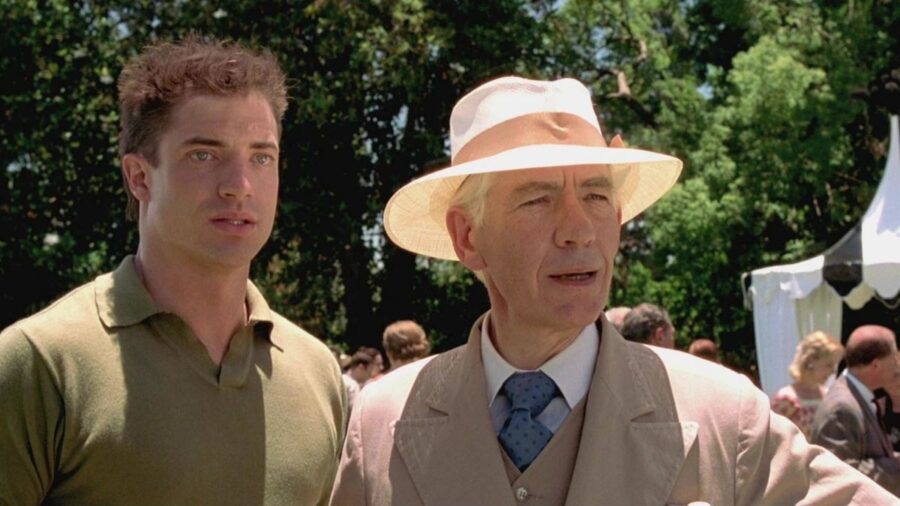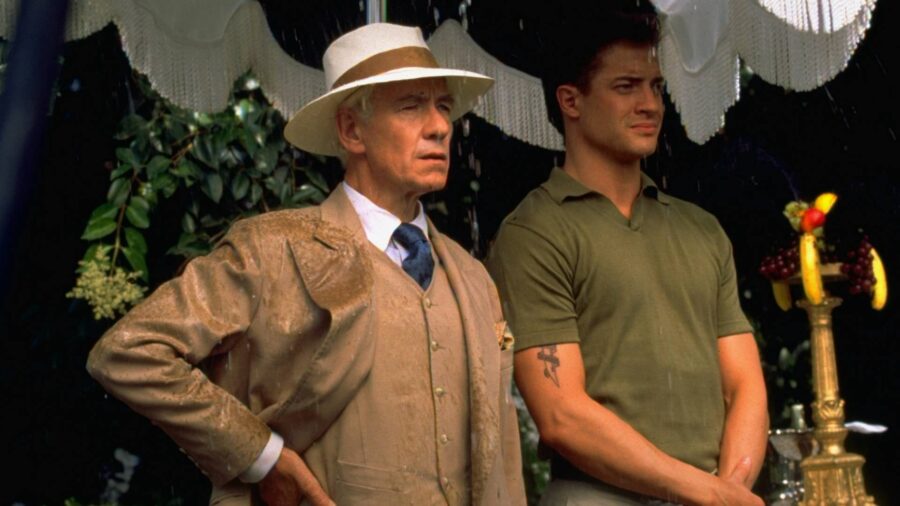Brendan Fraser’s Best Movie Is An Underrated ’90s Gem
Brendan Fraser's greatest performance ever came in the 1998 drama film Gods and Monsters, co-starring Ian McKellen.
This article is more than 2 years old
The current, ongoing revival of Brendan Fraser’s career is one of the more heartwarming events in recent film history. The recent standing ovation received at the Venice Film Festival for his reportedly outstanding work in Darren Aronofsky’s drama The Whale is wholly representative of the love with which his return to starring roles has been received. It seems Brendan Fraser may soon even be up for an Academy Award (and has recently already won a major award), which is a major step up from a long stretch of undistinguished roles and personal trauma in the 2010s.
While Brendan Fraser is at long last being recognized for his dramatic work, his best movie and finest performance actually date all the way back to the late 1990s. That film is 1998’s Gods and Monsters, a fictional telling of the final days of the famed Golden Age of Hollywood filmmaker James Whale. It was adapted from the 1995 novel Father of Frankenstein by Christopher Bram, and eventually nominated for three Academy Awards (winning one for Best Adapted Screenplay).

Gods and Monsters stars Ian McKellen as James Whale, who directed 21 feature films between 1930 and 1941. He also had a successful career as a stage director, theater manager, and actor in the United Kingdom, particularly known for a generationally definitive production of the World War I stage play Journey’s End (a conflict in which Whale had fought and been a prisoner of war for over a year ). But far and away, James Whale is best known for the 1931 film Frankenstein and its 1935 sequel Bride of Frankenstein, which codified the image of Boris Karloff as the lumbering, inarticulately violent, yet sensitive Monster and Elsa Lanchester as the terrified and terrifying Bride.
But by 1957, Ian McKellen as James Whale has long since retired after a career decline, suffered a series of strokes, and lives in a world of increasing nostalgia and depression in Los Angeles. That is until Brendan Fraser arrives as his new gardener. He co-stars with Ian McKellen as Clayton Boone, a former U.S. Marine who is introduced waking up in a shabby, cramped trailer surrounded by beer bottles before encountering the former director and immediately being told he is free to use the pool and not to worry about wearing a swimsuit.
James Whale was himself openly gay in a time period in which it was considered highly unusual, while Ian McKellen is a living LGBTQ icon and activist (Gods and Monster director and screenwriter Bill Condon is also openly gay). The film is deeply suffused with LGBTQ themes and imagery, with the growing friendship between the young, handsome, and almost comically macho Brendan Fraser and the worldly-wise and world-weary Ian McKellen having an unmistakable sexual tension.

That is not to say this movie is a romance; far from it, Gods and Monsters is both a depiction of a famous and talented man in his last days and an examination of trauma, memory, and desire. Sometimes that desire is openly lustful, which manifests with the hulking, muscular Brendan Fraser alternating between reacting violently to the physically frail, but overbearing Ian McKellen and cowering before him. Sometimes the desire is for some kind of peace with the past, or for understanding from others.
Periodically throughout Gods and Monsters, the film cuts to flashbacks of James Whale’s life, paralleled with Brendan Fraser’s grimy, unfulfilling life of bars and emotionless sexual trysts. The movie has detailed reproductions of the set of Bride of Frankenstein (as well as appearances from Jack Betts as Boris Karloff and Rosalind Ayres as Elsa Lanchester, among others), as well as sensual depictions of nude, all-male pool parties. Then sometimes the movie descends into dreams of James Whale’s films, now populated with Brendan Fraser as a mad scientist, and even more nightmarish images of bloody, gruesome trench warfare.
Gods and Monsters arrived for Brendan Fraser and Ian McKellen just before massive success in much more commercial fields. Brendan Fraser would soon be starring in The Mummy franchise of films (which helped bring us the film career of Dwayne Johnson), and Ian McKellan would shortly join both the X-Men series and Lord of the Rings. But two very different actors were perfectly matched in this one film, which showed both of them at their finest.












